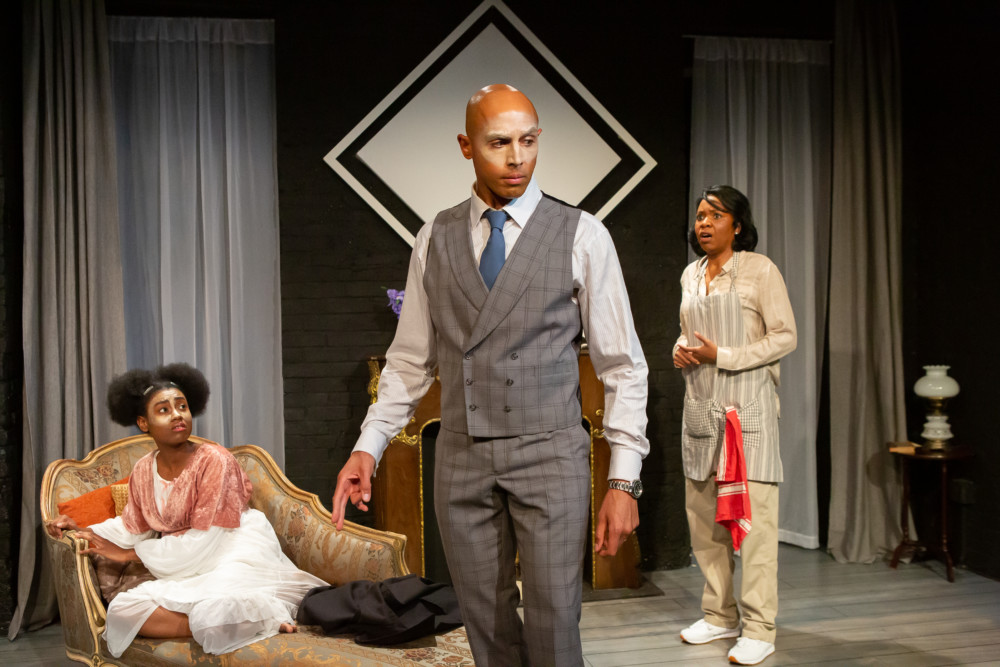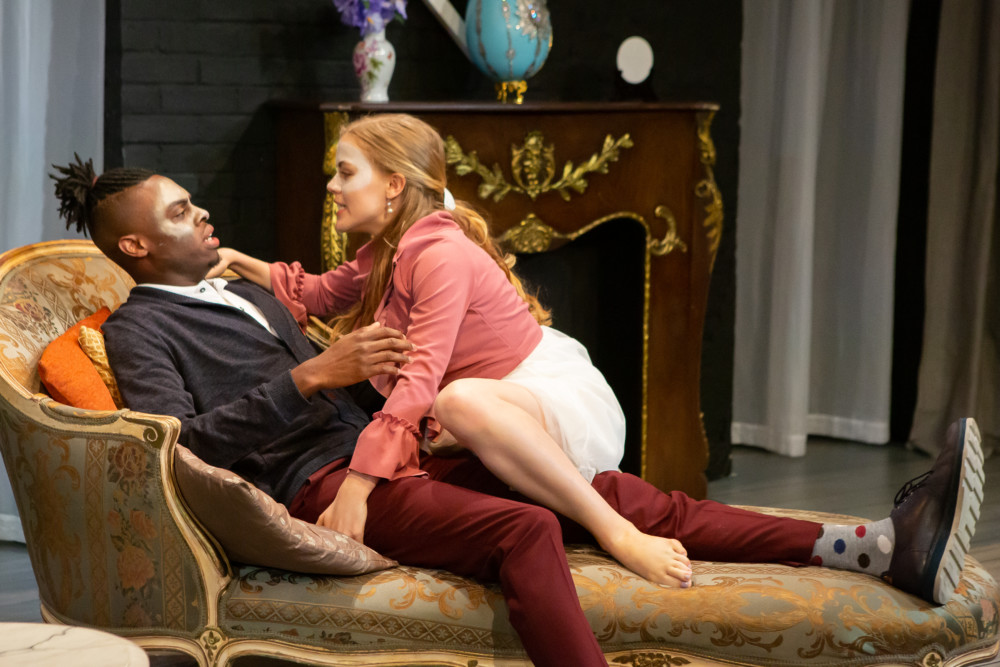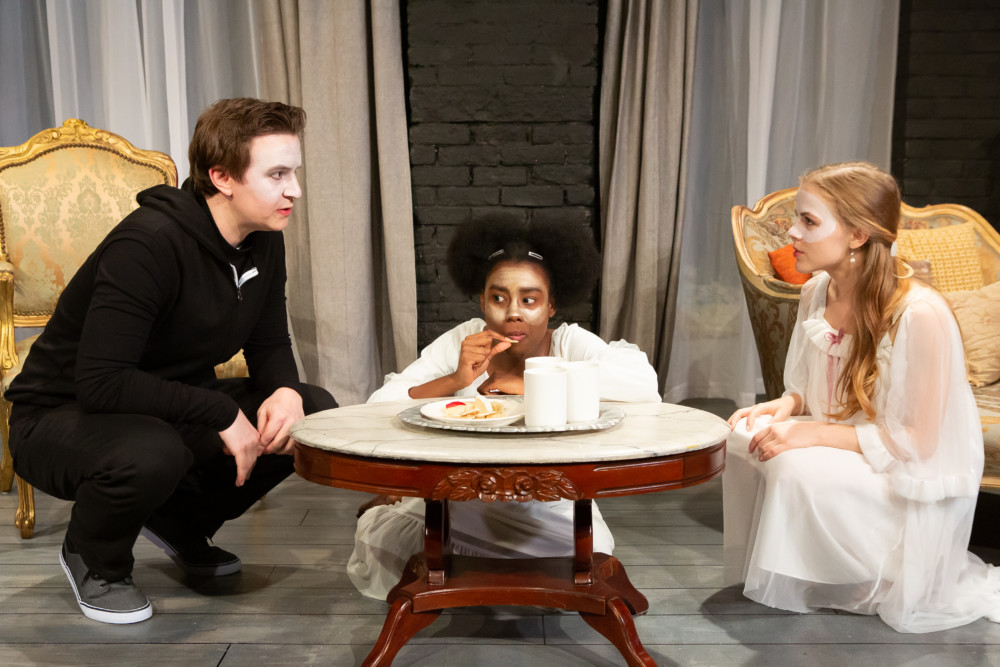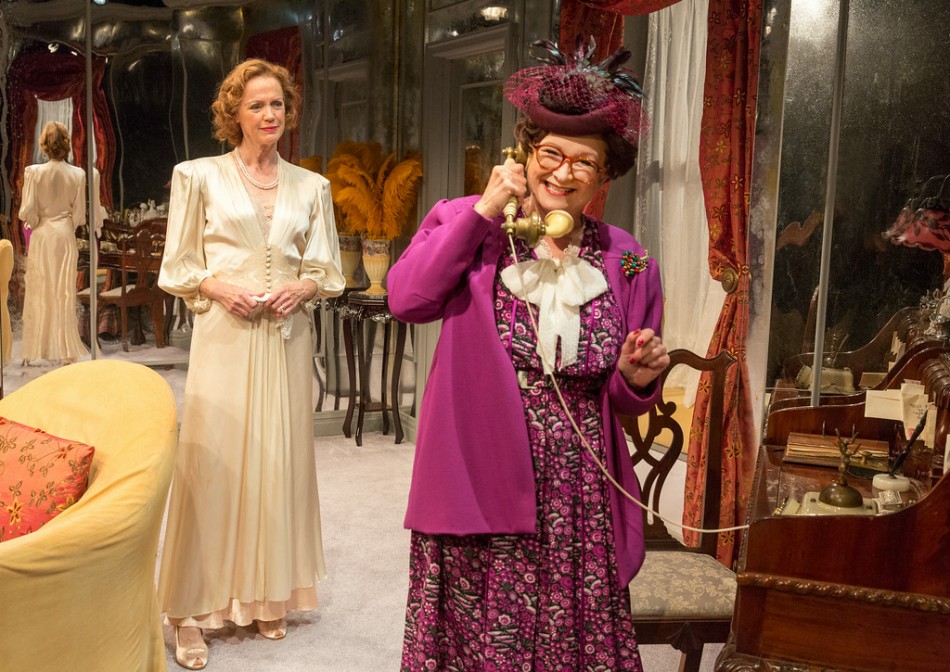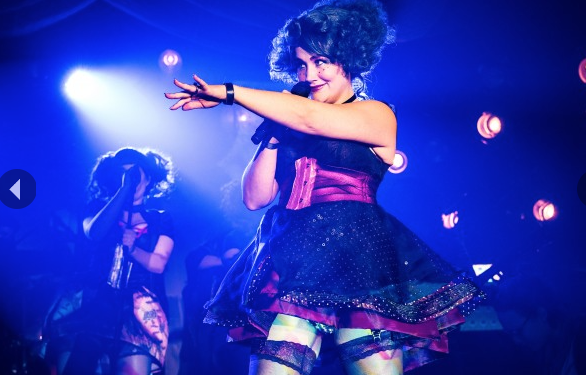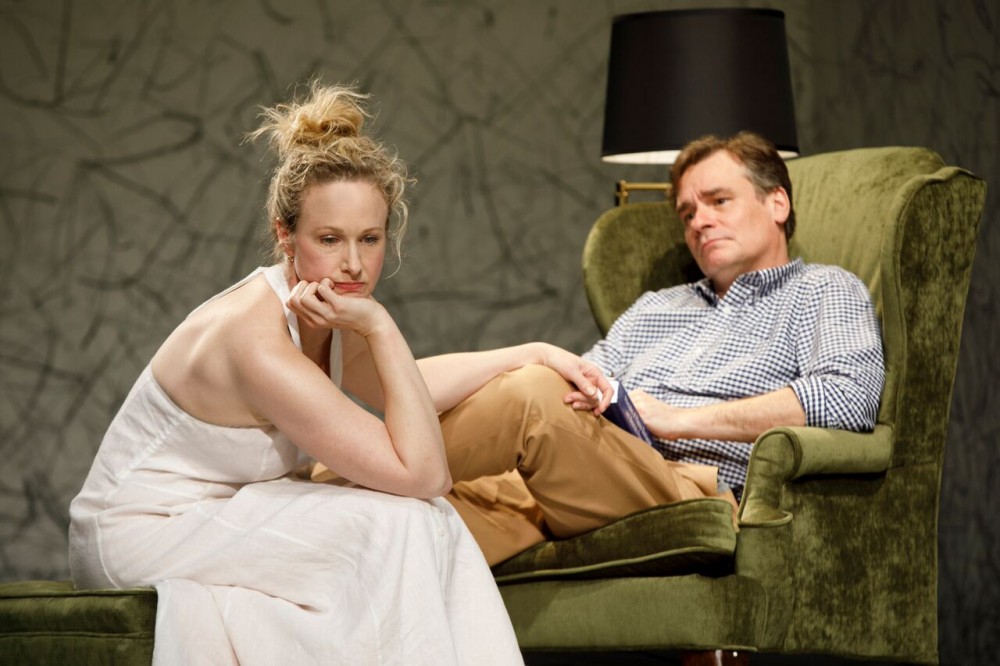by Hazen Cuyler
Small or no budget theatre often creates amazing, pure work. But the vast majority of these Off-Off Broadway productions operate under not-so-ideal conditions and sometimes the limitations of a truncated budget and abbreviated rehearsal period, mixed with blossoming experience, can lead to half-baked work. This is the case of The Great Novel written by Amina Henry, directed by Sarah Norris and running until June 29. It’s housed at The Flea but produced by New Light Theatre Project. And despite its shortcomings, the production is a healthy sample of Off-Off Broadway. Certainly not perfect. But through its stumbles, we witness the creative missteps of a young, healthy and growing theatre company.
Bertha (Nikki E. Walker), originally from Jamaica, is an aspiring novelist working as the live-in house maid of the very wealthy Brennan family. Scribbling away in her tiny, green.99 cent notepad, she’s delighted to discover and utilize ideas resembling those in classic European literature. Suddenly, Granny, her remembered Jamaican grandmother, begins appearing. The imagined ghost tirelessly works to convince Bertha to steal a valuable treasure from the home of this wealthy family, sell it, quit her job and focus on completing her book.
A harsh criticism of class, the play’s production maintains that these wealthy, stock-playing people are the hollow and unfeeling shells of society; each capable of achieving only an idea of identity, rather than functioning as a unique individual. Contrasting this harsh statement is a more sympathetic Bertha, whose conscience is clawed at by her determined grandmother, guiding her home to Jamaica toward an assumed freer and happier self. The play’s production also tip toes around an unclear, indirect and hardly discussed layer of implied racial significance- everyone’s face within the mixed ethnicity cast (aside from Bertha and her grandmother) is painted white as though they’re wearing Halloween store Lone Ranger masks.
Nikki E. Walker plays Bertha, providing an anchor point throughout the play. By the end, we see a revitalized person, freed from the confines of the same silly social status ideologies imprisoning her employers.The eldest sibling in the Brennan family is Saul. He’s an emotionally intelligent, sardonic, post college pill addict. Played with effortless magnetism by Michael Aguirre, he represents a lost generation of directionless, filthy rich adult children. People of potential who, as he states near the end of the play, never have to do anything. Living at home, he hates his father and casually curses out his sister. Often hilarious in their dueling wit and unabashed cruelty, nearly every scene with Saul and his sister is infused with complicated passion, fire and idleness.
Charlotte is Saul’s sister. Self-diagnosed as unhappy and played with confident poise by the talented MaryKathryn Kopp, she sifts through glossy pages of People Magazine while pressuring her rich, video-game-delusional, war-glorifying boyfriend into insincere games of adolescent courtship. Although these interactions are often funny and charming, she never feels love for him and when he ends their relationship we feel little sympathy for her.
At times, when the production encounters moments of despair or emotionally difficult realities- the death of a mother, a widowed father’s relationship to his lost wife, a major betrayal revealed late in the play, a revelation that one is not loved- the characters seem to experience an emotional void. This may be the script deliberately saying these particular rich people are unfeeling and it’s OK they’re unaffected by circumstantial trauma. However, in that case, we too remain unaffected. It may also be that the heightened emotional realities of the play were either not yet considered or not yet realized by the artists presenting this work.
Sarah Norris’ staging is precise, guiding her actor’s motivations around the stage so we rarely second guess this sterile, corporate household. Amina Henry’s script is challenging and the juxtaposition of Jamaica against the wealthy family home, sets up clear opposing ideologies at odds with each other. The construct of Granny grounds the audience with an inside look at Bertha’s personified inner thoughts and desires as she struggles to free herself from a secure but ultimately unsatisfying lifestyle.
There are some presentational elements which are difficult to ignore. Most glaringly, the stage’s depth is sacrificed for the sake of Jamaican scenery behind windows. This added scenery lacks detail and is curtained off for most of the play, resulting in a more claustrophobic playing space in exchange for a setting infrequently utilized. Atmospheric lighting to justify this crammed setting is also distracting. At one moment, Bertha’s grandmother speaks to us about her life in Jamaica. Colors transition to the clear orange skies of a Jamaican sunset. Very hot and tropical but its harsh color palette removes us from reality. Puzzling, under such bright lights, a tropical rain storm is heard simultaneously in the background.
The play’s production leaves you with much to think about and it’s possible that the play’s meaning is the element least pondered. Instead, this production is a fascinating exploration of successes and missteps from a talented and relatively young theatre company.
Productions lacking in professionalism or heart or desire to say something are unfortunately very common. And this isn’t one of those productions. The Great Novel, in all its production aspects, feels like the early steps of a passionate company with good taste. There are stumbles now, but even stumbles are exciting to witness when you can see the future potential.
Photos: Hunter Canning
Through Saturday, June 29 at The Flea Theatre (20 Thomas St, NY, NY).
http://theflea.org/. 95 Minutes with no intermission.


